Top Rankings
Taylor County School District ranks among the top 20% of public school district in Kentucky for:
Category
Attribute
Graduation Rate
Highest graduation rate (Top 5%)
For the 2025 school year, there is 1 public preschool serving 680 students in Taylor County School District.
Public Preschools in Taylor County School District have a diversity score of 0.22, which is less than the Kentucky public preschool average of 0.41.
Minority enrollment is 12% of the student body (majority Hispanic), which is less than the Kentucky public preschool average of 24% (majority Hispanic and Black).
Overview
This School District
This State (KY)
# Schools
6 Schools
543 Schools
# Students
2,712 Students
227,023 Students
# Teachers
167 Teachers
15,378 Teachers
Student : Teacher Ratio
17:1
17:1
District Rank
Taylor County School District, which is ranked within the top 50% of all 171 school districts in Kentucky (based off of combined math and reading proficiency testing data) for the 2021-2022 school year.
The school district's graduation rate of 96% has decreased from 97% over five school years.
Overall District Rank
#52 out of 172 school districts
(Top 50%)
(Top 50%)
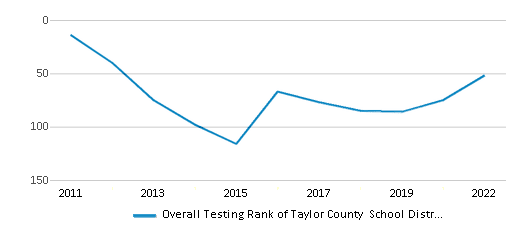
Math Test Scores (% Proficient)
40%
38%
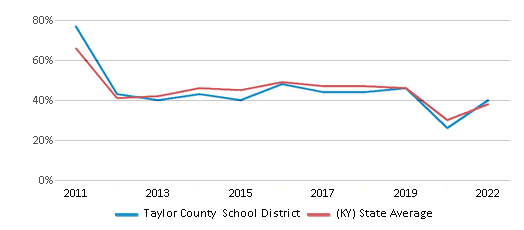
Reading/Language Arts Test Scores (% Proficient)
48%
45%
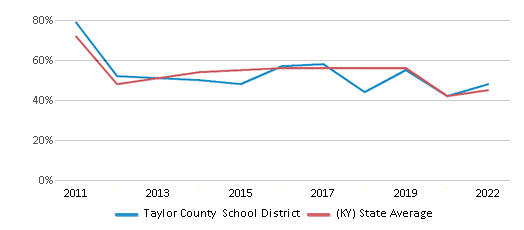
Science Test Scores (% Proficient)
18%
22%
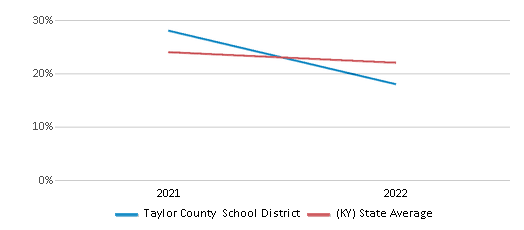
Graduation Rate
96%
90%
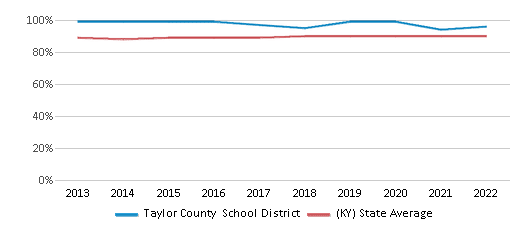
Students by Ethnicity:
Diversity Score
0.22
0.41
# American Indian Students
3 Students
304 Students
% American Indian Students
n/a
n/a
# Asian Students
25 Students
4,469 Students
% Asian Students
1%
2%
# Hispanic Students
123 Students
19,502 Students
% Hispanic Students
5%
9%
# Black Students
39 Students
18,667 Students
% Black Students
1%
8%
# White Students
2,397 Students
171,963 Students
% White Students
88%
76%
# Hawaiian Students
1 Student
463 Students
% Hawaiian Students
n/a
n/a
# Two or more races Students
124 Students
11,655 Students
% of Two or more races Students
5%
5%
Students by Grade:
# Students in PK Grade:
128
25,491
# Students in K Grade:
166
34,372
# Students in 1st Grade:
192
32,950
# Students in 2nd Grade:
194
33,468
# Students in 3rd Grade:
205
28,975
# Students in 4th Grade:
189
28,582
# Students in 5th Grade:
220
28,113
# Students in 6th Grade:
177
7,193
# Students in 7th Grade:
185
2,891
# Students in 8th Grade:
211
3,034
# Students in 9th Grade:
227
511
# Students in 10th Grade:
214
497
# Students in 11th Grade:
211
478
# Students in 12th Grade:
190
446
# Ungraded Students:
3
22
District Revenue and Spending
The revenue/student of $14,706 is higher than the state median of $14,242. The school district revenue/student has stayed relatively flat over four school years.
The school district's spending/student of $13,585 is less than the state median of $13,981. The school district spending/student has stayed relatively flat over four school years.
Total Revenue
$40 MM
$9,360 MM
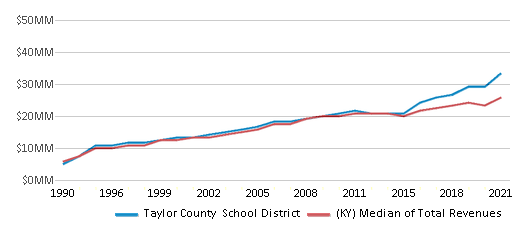
Spending
$37 MM
$9,189 MM
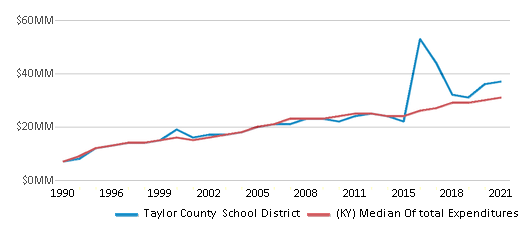
Revenue / Student
$14,706
$14,242
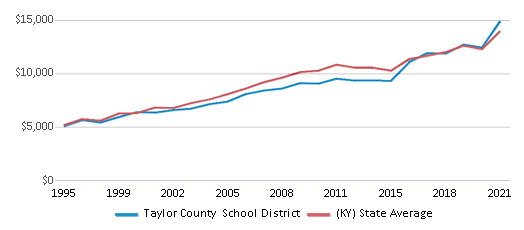
Spending / Student
$13,585
$13,981
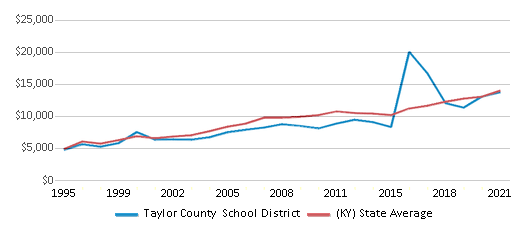
Best Taylor County School District Public Preschools (2025)
School
(Math and Reading Proficiency)
(Math and Reading Proficiency)
Location
Grades
Students
Rank: n/an/a
106 Ingram Avenue
Campbellsville, KY 42718
(270) 465-0449
Campbellsville, KY 42718
(270) 465-0449
Grades: PK-2
| 680 students
Recent Articles

Year-Round Or Traditional Schedule?
Which is more appropriate for your child? A year-round attendance schedule or traditional schedule? We look at the pros and cons.

Why You Should Encourage Your Child to Join a Sports Team
Participating in team sports has a great many benefits for children, there is no doubt. In this article you will learn what those benefits are.

White Students are Now the Minority in U.S. Public Schools
Increasing birth rates among immigrant families from Asia and Central and South America, combined with lower birth rates among white families, means that for the first time in history, public school students in the United States are majority-minority. This shift in demographics poses difficulties for schools as they work to accommodate children of varying language abilities and socio-economic backgrounds.





